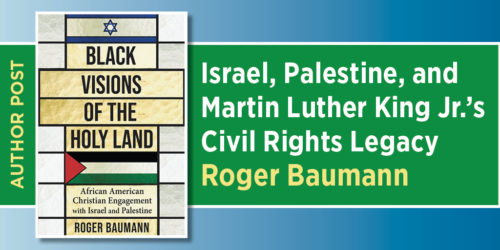Marianne Hirsch on the MLA's Resolution on Israel and Palestine
“When it comes to the topic of Israel and Palestine, discussion is curtailed before it begins. In a debate that is structured to allow only two clear-cut sides, words lose their meaning.”—Marianne Hirsch
Recent resolutions from the American Studies Association and the Modern Language Association have generated a lot of controversy as well as a lot of misunderstanding. In a recent essay in The Chronicle of Higher Education, Marianne Hirsch, author of The Generation of Postmemory: Writing and Visual Culture After the Holocaust clarifies not only the terms of the debate but what’s at stake.
In her essay, “The Sound of Silencing in American Academe,” Hirsch points out that the MLA’s recent resolution has been mischaracterized and was not a call for a boycott as some have suggested but rather “concerned restrictions on the freedom of travel for American students and faculty members of Palestinian descent to universities in the West Bank. Those restrictions are documented on the U.S. State Department website, and the resolution asked the MLA to urge the State Department to ‘contest’ them.”
Even before the discussion on the resolution at the recent MLA conference, Hirsch, who is the organization’s president, was subject to intimidation and received several e-mails and messages from American Jewish groups and others who (incorrectly) framed the MLA resolution as a boycott of Israel. These critics accused the MLA of being anti-Semitic and anti-Israel, even going so far as to evoke the Nazis in their criticism of the organization. As Hirsch points out, this kind of hyperbole, which comes from both supporters and critics of Israel’s policy on Palestine, does little to advance the debate. Hirsch writes:
When it comes to the topic of Israel and Palestine, discussion is curtailed before it begins. In a debate that is structured to allow only two clear-cut sides, words lose their meaning.
Hirsch argues that in such an environment, words like “boycott” become especially inflammatory and their meaning becomes distorted. It is just this type of distortion, Hirsch argues, in which an organization like the MLA can actually help to further such a political debate. In the conclusion to her essay, she explains:
Many people have questioned the MLA’s right to intervene in politics. But isn’t it precisely our linguistic expertise that could help sort out the irreconcilable meanings of words, their irresponsible deployment, and the practices of silencing that ensue?
To create the space for the difficult conversations we need to have now and in the future, we must get beyond the silences imposed in the name of academic freedom. We need our academic leaders, our university presidents, not to condemn our scholarly associations, but rather to protect our right to have and to sponsor those important conversations free from harassment campaigns and pre-emptive threats.


